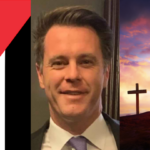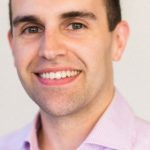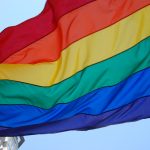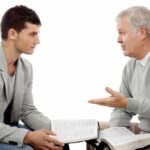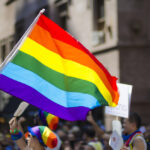Is Chris Minns Going to Ban Gay Conversion or Not? Or Is He Attempting to Do Both?
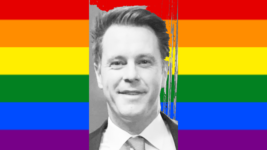
New South Wales premier Chris Minns prioritised the establishment of a multifaith council charged with providing advice to government on policy affecting faith groups. And having had its first meeting in November 2023, the influence of the NSW Faith Affairs Council is already proving divisive.
The Rationalist Society of Australia’s Si Gladman outlined a fortnight ago that it’s come to light that NSW Labor’s election promise to ban gay conversion therapy is already being watered down at the behest of the Christian top-heavy religious voice to parliament.
Gay conversion therapies consist of techniques employed to change or suppress a person’s sexual orientation or gender identity if it is not heteronormative. And these methods, which can involve pharmacological treatment or psychological therapy, actually traumatise and harm the subject.
In terms of muddying the reform that would prevent religious institutions from informing young LGBTQ people that there is something fundamentally wrong with their personality and it, therefore, needs fixing, the Minns government appears set to exempt “religious counselling” from the ban.
Indeed, key players involved in forming the NSW Faith Affairs Council, such as members of the recently established Faith NSW lobby group, appear to have secured an exemption for counselling, signalling that the multifaith advisory body will now be impacting state policy.
Faith influencing politics
Established by a parliament that recites the Lord’s Prayer to begin every session, the Faith Affairs Council has 19 members from majority religions, which translates to 11 Christian councillors, 2 Islamic and 2 Buddhist members, along with one Jewish, Sikh, Hindu and multifaith representative.
In terms of the sexes, there are 15 men on the council and 4 women.
In the run up to the March 2023 state election, both then NSW premier Dominic Perrottet and Labor opposition leader Minns promised to create a faith advisory body, as both practising Catholics were well aware that over recent years the majors have been losing the western Sydney religious vote.
The council has a direct line to NSW multicultural minister Steve Kamper’s office, and it is charged with understanding and ensuring that policies and services that are to affect religious communities don’t impact them in a negative way, in terms of adhering to the precepts of their faith.
Sydney Atheists president Steve Marton told 2GB Radio in early December that the representatives selected for the NSW Faith Affairs Council are “the most extreme elements of those religions” and they had the “strongest views” on a number of issues.
Marton spoke to Sydney Criminal Lawyers later that month to discuss his attempt to gain a position on the new faith council in order to represent the nonreligious in the community, which, at the last Census, accounted for 33 percent of the constituency. But NSW Labor rejected his application.
Baseless, ineffectual and damaging
Gay conversion came to the fore as an election issue this time last year, and Minns did not hesitate to assert the controversial practice would be banned outright. Yet, then premier Perrottet, known to be the more religiously conservative of the pair, hesitated at making such a firm commitment.
“We should not have a situation where children are being told something is wrong with them and that they need to be fixed,” Minns was quoted as saying at the time.
Independent MP for Sydney Alex Greenwich put the issue of gay conversion on the agenda, as the archaic practice continues to destroy lives in this state, whilst Victoria, the ACT and Queensland have banned the practice. And there’s talk of prohibiting it in Tasmania, SA and WA at present.
Greenwich introduced the Conversion Practices Prohibition Bill 2023 into parliament last August. Based on the 2021 Victorian model, it would “prohibit change and suppression practices” and “establish a civil response team” to ensure the ban is adhered to and deal with ongoing cases.
Gay conversion therapies emerged in Australian Christian communities in the 1970s, at a time when state governments began shifting their previous positions on homosexuality, which had seen it outlawed and institutions engaging in practices to “correct” such tendencies.
“It is emotionally destructive to be told that you are bad, sinful and to blame for who you are and that you need to change something intrinsic about yourself,” said Greenwich, during his 24 August 2023 second reading speech on the bill.
“It can destroy self-worth and confidence and lead to health and mental health challenges like addiction, depression, self-harm, suicidal ideation and suicide.”
The bill defines change and suppression therapies as those aimed at intentionally altering or concealing sexual orientation or gender identities that aren’t heterosexual, unless a registered health professional recommends it as part of a treatment that complies with legal standards.
Prayers and guidance
Minns reneging on an election promise, so that religious counselling that would have been caught up in a broad gay conversion ban should be kept on the table, isn’t the first time the Labor premier has reversed position due to conservative pressure, as he’s done the same with drug law reform.
Faith NSW head Murray Norman, a Presbyterian, appeared on radio in October to say in relation to gay conversion that people need to be able to practise their faith, which in translates as Christians should be able to continue to apply pressure to LGBTQ people in an effort to change them.
Not only is Norman a key player in the state’s new multifaith lobby group, but he’s the CEO of Better Balanced Futures, which is a multifaith group engaged in improving access to special religious education (SRE) in schools. BBF further has a member on the state faith council.
The decision of the Faith Affairs Council to provide advice in relation to the slated Labor-drafted gay conversion prohibition and to recommend that religious counselling remain on the cards, reveals that the prioritisation of the religious voice over that of the nonreligious is in full swing in this state.
The public caught wind of the weakening of the ban, as Australian Ahl Al Bait Islamic Centre’s Dr Ali Al Samail, a council member, posted a letter to his community leaders in November, stating he’d secured a commitment from NSW attorney general Michael Daley to retain religious counselling.
But Samail’s claim to have wielded such influence denies the fact that there are 18 other members on council, whom he’d need a majority of support from. And with most councillors being of the faith that established such therapies in this country, we can be sure that some Christians are in support.
And in kicking off its role in influencing state politics, the NSW Faith Affairs Council has succeeded in requesting that a harmful and debunked technique continue to be practiced in the community, which has set a precedent for more divisive and conservative advice that sticks up ahead.


